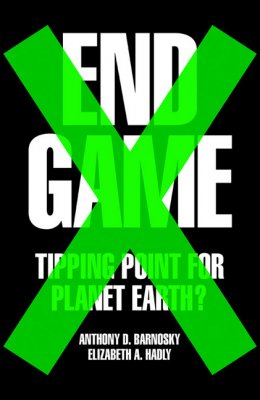Ever since George Perkins Marsh’s seminal 1864 work, Man and Nature: Or, Physical Geography as Modified by Human Action, books assessing the state of the planet have become a staple part of the environmental literature. Marsh’s magnificent work spawned some valuable retrospectives, including Man’s Role in Changing the Face of the Earth (1956) and The Earth as Transformed by Human Action (1993).
But, since 2000, most of the really good stuff on biosphere and ecosystems science has been beyond the reach of many, behind the paywall of scientific journals (e.g. John Estes’ superb Trophic Downgrading of Planet Earth, Dirzo’s Defaunation in the Anthropocene, and Diffenbaugh’s Changes in Ecologically Critical Terrestrial Climate Conditions).
Following his 2012 paper in Nature, Approaching a state shift in Earth’s biosphere, Anthony Barnosky might well have followed the same route – but thankfully this brilliant and passionate scientist is also a believer in reaching out to a broader public: see his latest book, End Game: Tipping Point for Planet Earth.
Another leading light of planetary ecological assessment is the Swedish scientist, Johan Rockstrom, inventor of the ‘planetary boundaries’ concept, and author of perhaps the most influential peer-reviewed paper of the last decade (A safe operating space for humanity). He also has a new book just out, Big World, Small Planet.
Other notable recent publications on this theme include: The God Species (Lynas), The Sixth Extinction, an Unnatural History (Kolbert), the magisterial Millennium Ecosystem Assessment, Eaarth (McKibben), The Living Planet report 2014, (WWF), Here on Earth (Flannery), and Global Environmental Outlook 5.






